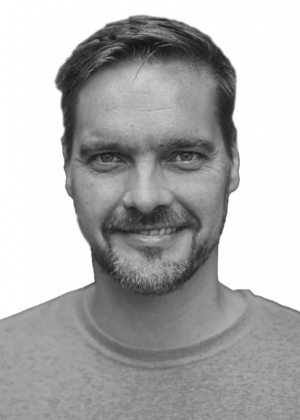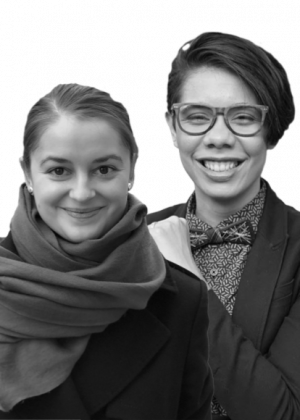Program
Joining Time
Join through the Zoom link you received

Karsten Vestergaard
Host
Welcome to Design Matters Pop-up!
Karsten will be the host of this online event focused on behavioral design and the 17 Sustainabile Development Goals. His job will be to make your online experience great and seamless, as well as introducing all the talks and speakers.

Sille Krukow
Founding Partner
Behavior Change Group
Design to change behavior in a digital future
90% of human decisions are determined by the design of our surroundings. This means that if we are to design behavior in a digital future we need to know how to support basic human instincts and design for the subconscious everyday decisions.
Sille will introduce practical case examples on how to nudge and change behavior when entering a future where digital services needs to be intuitive and user centric in order to survive in a competitive market.
GOALS
Goal 8: Decent Work and Economic Growth
Goal 9: Industry, Innovation, and Infrastructure

Damion Bailey
Senior UX & Design Manager
CLEVER A/S
People Change
You may have found yourself asking, ‘But what can I do?’ at some point in the decades-long struggle with climate change. The answer could be ‘a lot’, if we can scale up some of our individual choices to collective action. That is one of the questions they’re working with at Clever. Electric mobility and the increasing consumption of electrical power will be a challenge for many areas of our society. Their overall goal is to help build a movement that encourages the behaviors that move us closer to 0% emissions.
Damion will share how Clever uses Experiential design to put the users at the center of driving needed change, and how they activate ‘Trust’ throughout the process to allow collective action to help reduce Denmark’s carbon footprint.
GOALS:
Goal 7: Affordable and Clean Energy
Goal 11: Sustainable Cities and Communities
Goal 13: Climate Action

Justyna Adamczyk and Layshi Curbelo Vega
Head of People / Design Advocate
Sketch
Why trust is at the heart of innovation, excellence and great work
As a fully remote company for over a decade, Sketch has built a working environment that connects people around the world, helping them do their best work together. Join Sketch’s Justyna Adamczyk and Layshi Curbelo, as they take us through efficiency, motivation and output in a remote culture that has trust, freedom and collaboration at its core.
GOALS
Goal 3: Good Health and Well-Being
Goal 8: Decent Work and Economic Growth
Goal 9: Industry, Innovation, and Infrastructure
Coffee Break
Take a break, enjoy a coffee or tea, and if you feel like it, submit some questions!

Ida Lemoine
CEO, Co-founder & Author
Beteendelabbet
Design for a sustainable lifestyle
It’s clear what we need to do to reach more sustainable cities, but how do we get there?
The Swedish Behavioural Lab has over the past years become experts in how design impacts us in the physical space and how to develop creative solutions that make it more easy to be sustainable in the city.
By combining Psychology, Design and Behavioural Economics, The Swedish Behavioural Lab creates solutions that aim towards a more social, simple and climate smart lifestyle. Ida will share some solutions that will take us in the right direction towards more sustainable behaviours in the future city.
GOALS
Goal 11: Sustainable Cities and Communities

Marek Hasa
CEO
Flying Kale
Closing the Usability-Usage Gap In Digital Mental Health Interventions
Designing for maximum usability is a prerequisite for positive outcomes when creating a digital product or intervention for improving mental health. However, high usability does not always translate into regular, frequent-enough use. Marek will share his tips for designing a user journey with high usage and successful product (intervention) adoption, all based on his experience from three projects with different, highly specific target groups – care home clients, socially isolated seniors living at home, and young people with OCD.
GOALS
Goal 3: Good Health and Well-Being
Goal 10: Reduced Inequalities

Samuel Salzer
Behavioral Strategist & Keynote Speaker
Salzer Behavioral Strategy & Consulting
The Science Behind Habit Forming Tech
In order to achieve any of the UN’s Sustainability Goals, we need to understand how to help people change their habits. The one big problem is that it’s difficult to do and, to make things worse, most scalable solutions fail to properly design for habit formation. This talk will show you why habits are hard to change, the science behind how to change them, and the three most common mistakes made when creating scalable habit-forming solutions.
GOALS
Goal 3: Good Health and Well-Being
Goal 13: Climate Action
Lunch Break
Enjoy your meal! Remember that you can submit questions ;)

Vitaly Friedman
Co-founder & Editor-in-Chief
Smashing Magazine
Designing for Complex UIs
Not much can surprise you when it comes to interface challenges, doesn’t it? You can design a decent card, a well-rounded accordion and an exquisite hamburger navigation. But what if there are slightly more complex UX challenges ahead of us? How do we make the accessible to everyone around the world? What if you are dealing with complex filters, multi-page forms or multi-step modals and overlays? What about intricate enterprise-grade tables and dashboards? Or perhaps creating a resilient navigation system for a family of 115 websites?
Well, complex UI doesn’t have to be complicated. We need to hide the complexity under the surface, making it easier for everyone to get complex tasks done easier. In this session with Vitaly Friedman, UX consultant and creative lead behind Smashing Magazine, we’ll dive deep into dissecting how to solve complex design problems to make applications accessible and usable, maximizing clarity and minimizing ambiguity along the way. Whether you’re working on a complex nested multi-level navigation or creating complex tables, this session will give you some strategies and tools you need to get better at your work.
GOALS
Goal 9: Industry, Innovation and Infrastructure
Goal 10: Reduced Inequalities

Silja Voolma
User Experience Lead
Behavioral Design Global
Freedom to change: autonomy-supportive design
The COVID-19 pandemic catapulted self-care and wellbeing into mainstream societal discourse in a way like never before. Whether to prevent or manage COVID-19, navigate burnout in the workplace and at home, or figure out a way to exercise daily amidst confinement to our spaces, maintaining habits to support optimal health and wellbeing is trickier than ever. Digital health solutions have been heralded as the key to connecting with the masses in the hopes of influencing their behaviour towards healthier choices, but the tension between a traditionally top-down healthcare discourse and the sustainable source of motivation towards action within individuals has not garnered enough attention to reliably deliver transformational digital health products and services. In this talk, Dr. Silja-Riin Voolma shares insight into the importance of autonomous choice in promoting, achieving and maintaining healthy lifestyles, how design strategy can deliver autonomy-supportive solutions and what are the components of an autonomy supportive user experience in the digital health space.
GOALS
Goal 3: Good Health and Well-Being

WuQing Hipsh
Community Lead
Applied
Redesigning Hiring For an Inclusive Future
Have you ever been frustrated applying for a job? You send out 100s of CVs, trying to paint a detailed picture of your skills, abilities, and challenges, only to never hear back.
The typical hiring project is rife with bias, relying on poor predictors for future success.
Years of research, in education and welfare policy, show that human biases are embedded in hiring.
Applied are redesigning the hiring process to give every candidate an equal opportunity. Putting skills over credentials, and science over the status quo.
GOALS
Goal 5: Gender Equality
Goal 8: Decent Work and Economic Growth
Goal 10: Reduced Inequalities
Coffee Break
Take a break, and if you've got some time in your hands you can ask us questions!

David Dylan Thomas
Founder, CEO
David Dylan Thomas, LLC
Design for Cognitive Bias: Using Mental Shortcuts for Good Instead of Evil
Users’ minds take shortcuts to get through the day. Usually they’re harmless. Even helpful. But what happens when they’re not? In this talk we’ll use real-world examples to identify some particularly harmful biases that frequently lead users to make bad decisions. We’ll then talk about some content strategy and design choices we can use in our apps, designs, and platforms to redirect or eliminate the impact of those biases. Finally, we’ll explore our own biases as practitioners and some methods to prevent our own blind spots from hurting users.
GOALS
Goal 5: Gender Equality
Goal 10: Reduced Inequalities

Melina Palmer
CEO, Founder & Author
The Brainy Business
Asking Better Questions to Solve the Right Problems
It’s really easy to find the right answer to the wrong question. When it comes to shifting human behavior, you need to understand what you want people to do and then which levers to pull to nudge them down the path. This presentation will give a framework of Behavioral Baking to use as you think about problems using the insights you’ve gained from this conference. Melina will unlock secrets of the brain with practical applications and insights from behavioral economics anyone can apply immediately.
GOALS
Goal 3: Good Health and Well-Being
Goal 8: Decent Work and Economic Growth